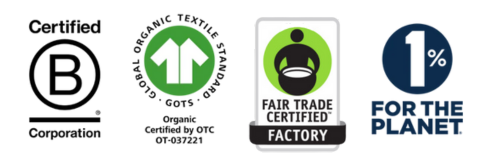This blog is a part of our Ultimate Guide to Baby-Led Weaning. Check it out for more information!
Baby-led weaning (BLW) is a wonderful way to introduce your baby to solid foods and encourage independence in their eating habits. It allows them to explore a variety of tastes and textures, but there are certain foods that should be avoided during this stage of their development. In this blog post, we will discuss the foods that you should steer clear of when practicing baby-led weaning.
1. Honey
Honey should not be given to babies under 12 months of age as it can contain bacteria that can be harmful to their immature digestive systems. It is best to wait until after their first birthday to introduce honey.
2. Soft-Ripened Cheeses
Cheeses such as Brie, Camembert, and blue cheese should be avoided during baby-led weaning due to the risk of listeria contamination. These cheeses have a higher risk of carrying this bacteria, which can be harmful to babies.
3. Added Salt and Sugar
Babies under 12 months of age should not consume added salt or sugar. Their kidneys are not yet developed enough to process excess amounts of salt, and sugar can contribute to unhealthy eating habits later in life. It is best to avoid adding these to your baby's food.
4. Paté
Paté, including liver paté, should be avoided during baby-led weaning. It can contain high levels of vitamin A, which can be harmful to babies in large amounts.
5. Whole Cow's Milk (or Goat's/Sheep's Milk) as a Main Drink
Babies under 12 months of age should not consume whole cow's milk (or other animal milk) as their main source of drink. They should continue to receive breast milk or formula until they turn one year old. However, small amounts of milk can be introduced into their solid foods from six months of age.
6. Shark, Swordfish, or Marlin
These fish should be avoided during baby-led weaning due to their high mercury levels. Mercury can be harmful to a baby's developing nervous system.
7. High Choking-Risk Foods
Foods that pose a high choking risk, such as whole grapes and whole or chopped nuts, should be avoided during baby-led weaning. However, nut butters can be introduced at six months of age.
8. Stimulants
Foods that contain stimulants like chocolate or sugar should be avoided during baby-led weaning. These can affect your baby's sleep patterns and overall well-being.
9. Unhealthy and Processed Foods
Battered foods, sugary breakfast cereals, chips, and other processed foods should be avoided during baby-led weaning. These foods do not provide the necessary nutrients for your baby's growth and development.
10. Caffeinated Drinks
Caffeinated drinks such as tea, coffee, hot chocolate, and cola should not be given to babies under 12 months of age. These drinks can have a stimulant effect on their developing bodies.
Baby-Led Weaning Should be Safe and Enjoyable
Remember, baby-led weaning doesn't have to be an all-or-nothing approach. You can choose to offer your baby soft finger foods and small portions of family meals alongside spoon-feeding purees. The most important thing is that both you and your baby feel comfortable and content with your feeding routine.
Baby-led weaning is an exciting time to introduce your baby to new foods, but it's important to be aware of the foods to avoid. By following these guidelines, you can ensure a safe and enjoyable experience for your baby.
How Tabeeze Can Help During Baby-Led Weaning
Let Tabeeze make your baby-led weaning journey easier. Our baby onesies feature convenient shoulder snaps that help minimize the mess during baby-led weaning.
With a quick snap, Tabeeze allows you to place the bib right onto your child’s bare chest during mealtimes, keeping the outfit clean and away from the mess of baby-led weaning as your little one explores and plays with the food as they explore new tastes and textures. Tabeeze adds convenience to your baby-led weaning adventure, ensuring a more enjoyable experience for you and your little one. Say farewell to stained tops and numerous outfit changes due to meal time, and embrace the convenience of Tabeeze during your baby-led weaning journey.
Disclaimer: The information provided in this blog post is for educational purposes only and should not replace medical advice. If you have specific concerns or questions about introducing solid foods to your baby, consult a healthcare professional or a registered dietitian.






